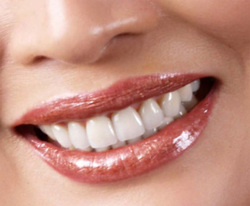
Data have given away that menace of dental implant failure is about 6 percent for lower jaw implants and twelve percentages for upper jaw implants.The Term tannlege means dentist. Though one of the most puzzling elements of dental implant failure is that in one individual owning multiple implants, maybe all but one of the implants will be successful. We cannot determine causes the dental implant failure.
Various specialists have proposed that this form of dental implant problem is the result of bacteria present in the jawbone prior to an implant is placed; when the implant is screwed into the bone, it unleashes the microbes and turns them movable in the tissue surrounding the implant. So long as the other implants are placed in bacteria free bone, they'll mend cleanly and immediately, but the germ-infested implant will eventually become swollen, never healing correctly, and the implant will ultimately fail.
Dental implant issue is not the same as dental implant rejection. Dental implants are made of titanium, a metal which, as a result of its "unmoving" nature, has been used for nearly 42 years in hip replacements. Titanium causes no adverse reactions in human tissue, and when it is commercially pure, no allergic reactions.
A dental implant, though, can become impure at the factory where they are made, even though all dental implant manufacturers must comply with strict quality standards. Or it could get infected in the dentist's office during the implantation process, although all dental surgeons are also expected to follow the highest cleanliness procedures.
Whatever the underlying cause of a dental implant problem, the problem is most likely to surface shortly after the implant procedure. Anyone experiencing excessive discomfort or bleeding after an implant procedure should contact their dental surgeon immediately.
The dental implant problem can also be the result of the patient's neglect of aftercare. The dental surgeon will provide a clear set of instructions on caring for the new implant, and it is essential that the instructions be followed. If, in spite of maintaining the implant properly, the patient still develops swelling or tenderness around the implant, it could be a sign of infections and the dentist should be consulted as soon as possible.
A dental implant issue can also occur if the implant has been improperly situated. A poorly placed implant will be disturbed by the mouth's biting motion; and people who know they grind their teeth in their sleep should ask their dentists if they are good candidates for dental implants. In most cases the dentist will simply supply you with a mouth keep your teeth grinding at a minimum.
And if, despite your best efforts, you experience dental implant issue, you can simply have the implant replaced when the cause of the issue has been determined and eliminated.
You can also find more info on Dental Implant and Dental Implant Bone at tannlege http://eurodent.no
Various specialists have proposed that this form of dental implant problem is the result of bacteria present in the jawbone prior to an implant is placed; when the implant is screwed into the bone, it unleashes the microbes and turns them movable in the tissue surrounding the implant. So long as the other implants are placed in bacteria free bone, they'll mend cleanly and immediately, but the germ-infested implant will eventually become swollen, never healing correctly, and the implant will ultimately fail.
Dental implant issue is not the same as dental implant rejection. Dental implants are made of titanium, a metal which, as a result of its "unmoving" nature, has been used for nearly 42 years in hip replacements. Titanium causes no adverse reactions in human tissue, and when it is commercially pure, no allergic reactions.
A dental implant, though, can become impure at the factory where they are made, even though all dental implant manufacturers must comply with strict quality standards. Or it could get infected in the dentist's office during the implantation process, although all dental surgeons are also expected to follow the highest cleanliness procedures.
Whatever the underlying cause of a dental implant problem, the problem is most likely to surface shortly after the implant procedure. Anyone experiencing excessive discomfort or bleeding after an implant procedure should contact their dental surgeon immediately.
The dental implant problem can also be the result of the patient's neglect of aftercare. The dental surgeon will provide a clear set of instructions on caring for the new implant, and it is essential that the instructions be followed. If, in spite of maintaining the implant properly, the patient still develops swelling or tenderness around the implant, it could be a sign of infections and the dentist should be consulted as soon as possible.
A dental implant issue can also occur if the implant has been improperly situated. A poorly placed implant will be disturbed by the mouth's biting motion; and people who know they grind their teeth in their sleep should ask their dentists if they are good candidates for dental implants. In most cases the dentist will simply supply you with a mouth keep your teeth grinding at a minimum.
And if, despite your best efforts, you experience dental implant issue, you can simply have the implant replaced when the cause of the issue has been determined and eliminated.
You can also find more info on Dental Implant and Dental Implant Bone at tannlege http://eurodent.no
